#complex carbohydrates
Text
5 Tips for Preparing for Your First Fun Run
By Ben Lucas, Director of Flow AthleticSo you’ve recently joined a run club and have now been roped into doing your first fun run. Don’t worry, we’ve got you. Here are Ben Lucas’s top tips to get you ready and trust us, he knows what he’s talking about. Ben turned to running after he retired from Rugby League, and he has since completed 40 marathons before he turned 40. He has also just launched…

View On WordPress
#Antioxidant Foods#Athletic Training.#Balanced Breakfast#Ben Lucas#Cancer Research Support#cardiovascular health#Complex Carbohydrates#Dietary Advice#Distance Training#endurance building#Energy Snack#Fast-Twitch Muscles#First Time Runner#Fitness Guidance#Flow Athletic#Former Rugby Player#Fun Run#Hill Sprints#Long-Distance Running#Marathon Runner#Outdoor Training#Paddo Panthers#Protein-Rich Diet#Retro Run#Run Club#Running Preparation#Running Strategy#Sprint Training#Sydney Event#Sydney Harbour 10&5K
3 notes
·
View notes
Text
Methi Thepla Recipe | How to make Methi Thepla
Methi Thepla
Methi thepla is a popular Gujarati flatbread prepared using fenugreek leaves (methi), whole wheat flour, and various spices. It’s a nutritious and tasty dish that can be enjoyed for breakfast, lunch, dinner or while travelling. Here’s a basic recipe to make methi thepla.
Every household has its recipe for making thepla. Some are prepared with a mixture of flour. Like whole wheat…

View On WordPress
#bitter#BREAKFAST#chutney#complex carbohydrates#coriander#cumin#easy breakfast recipe#easy paratha recipe#fenugreek leaves#fiber#GLUTEN-FREE#gram flour#grated coconut#grated vegetables#griddle#Gujarati thepla recipe#healthy paratha for breakfast#healthy paratha recipe#healthy recipes#how to make thepla#Indian flatbread#jowar flour#methi#methi ka paratha#methi paratha recipe#methi recipe#methi thepla by Swati#Methi thepla recipe#minerals#oil
2 notes
·
View notes
Text
FEEL FULL ON FEWER CALORIES!
FEEL FULL ON FEWER CALORIES!
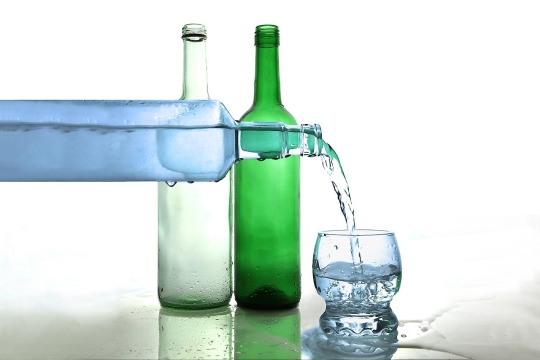
View On WordPress
6 notes
·
View notes
Text
Healthy Diet Chart for Weight Loss: A Medically-Backed Guide
Healthy Diet Chart for Weight Loss: A Medically-Backed GuideMaintaining a healthy weight is crucial for overall well-being, reducing the risk of chronic diseases, and improving quality of life. A well-planned diet is key to effective weight loss and long-term success. This article offers a medically-backed diet chart designed to promote sustainable weight loss without compromising essential…
#anti-inflammatory diet.#balanced nutrition#brown rice#caloric deficit#complex carbohydrates#egg whites#exercise for weight loss#frequent meals#fruits and vegetables#Greek yogurt#green tea for weight loss#grilled chicken#Healthy diet#hydration#lean protein#long-term health#low-calorie snacks#low-fat milk#macronutrients#micronutrients#mindful eating#nutrient-dense foods#oats#paneer salad#physical activity#portion control#processed foods#steamed vegetables#sustainable weight loss#turmeric benefits
0 notes
Text
From Glycans to Function: Navigating the Landscape of Glycomics
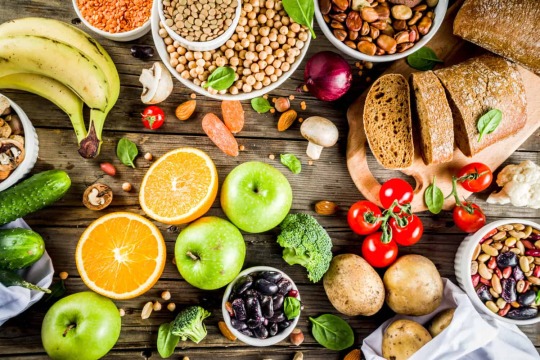
Glycomics, the study of complex carbohydrates known as glycans, represents a multifaceted field that delves into the diverse roles these molecules play in biological systems. By unraveling the intricate relationships between glycans and cellular function, researchers navigate a complex landscape that holds promise for advancing our understanding of health, disease, and beyond.
Glycomics in Biological Context: Glycans are ubiquitous in nature, adorning cell surfaces and influencing a myriad of physiological processes, from cell-cell recognition to immune response modulation.
Understanding the functional significance of Glycomics requires comprehensive analysis of their structures, interactions, and dynamics within biological systems.
Glycan Biosynthesis and Regulation
The intricate process of glycan biosynthesis is tightly regulated within cells, involving a complex network of enzymes, transporters, and regulatory factors.
Dysregulation of glycan biosynthesis pathways can have profound implications for cellular function, contributing to disease states such as cancer, autoimmune disorders, and metabolic syndromes.
Glycomics Technologies and Analytical Approaches
Advances in glycomics technologies, including mass spectrometry, glycan microarrays, and glycan profiling techniques, have revolutionized our ability to study glycans in unprecedented detail.
These analytical approaches enable researchers to map glycan structures, characterize glycan-protein interactions, and elucidate glycan-mediated signaling pathways, providing valuable insights into their functional roles.
Get More Insights On This Topic: Glycomics
Explore More Related Topic: Glycomics
#Glycomics#complex carbohydrates#glycans#biomolecular research#molecular biology#carbohydrate analysis#glycan structures#cellular communication#biomedical science
0 notes
Text
Diet Chart For Weight Gain
The best diet chart for weight gain is one that is high in protein and calories. You should aim to eat a minimum of 1,600-1,800 calories per day, with at least 30% of those coming from protein. You'll also want to make sure you're getting plenty of vitamins and minerals to support your health and help with weight gain. Consider taking a multivitamin supplement if you're not getting all the nutrients you need from food. There is no one-size-fits-all diet chart for weight gain. What works for one person may not work for another. However, a general guideline to follow is to eat more calories than you burn each day.
0 notes
Text
The Ultimate Guide to Food for Weight Training
Are you ready to shed those extra pounds and build a stronger, leaner body through weight training? Great! But remember, getting in shape isn’t just about what you do in the gym; it starts in the kitchen. What you eat plays an important role in your journey to a healthier, slimmer youNutrition is crucial when it comes to fat loss during weight training. What you eat can make a significant…
View On WordPress
#complex carbohydrates#fat#fibre#fitness#hormone#metabolism#minerals#protein#Vitamins#weight training#weightloss
0 notes
Text
The Best papaya and oatmeal to lose weight recipe
In this blog post, we will reveal the best papaya and oatmeal to lose weight recipe, which includes papaya and oatmeal.
Introduction:
Embarking on a weight loss journey can be challenging, but with the right combination of nutritious ingredients, it can be delicious and enjoyable. In this blog post, we will reveal the best recipe for weight loss, which includes papaya and oatmeal.
This…
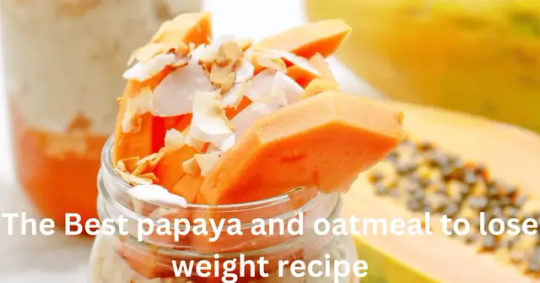
View On WordPress
#cinnamon#complex carbohydrates#fiber#minerals#nutmeg#oatmeal#papain#papaya#papaya and oatmeal benefits#papaya and oatmeal to lose weight recipe#protein#recipe#smoothie#vitamins#weight loss#what papaya is good for weight loss?#which oatmeal is best to lose weight
0 notes
Text
The Obesity Epidemic of the 1990’s
The main point of this video from Deutsche Welle is to describe the causes of the world-wide obesity epidemic of the 1990’s.
youtube
DW quickly points to the aggressive sale and marketing of “Junk Food” with high calorie dense carbohydrates, as you find in candy bars, fast-foods and over-sweetened drinks and juices. They demonstrate that executives in the food industry have acknowledged this problem for decades, but can’t free themselves from the easy money. This point is well-defined by DW.
One very important point that should be added: a major cause of the Obesity Epidemic in North America was the “grossly flawed” Food Pyramid of 1992. In the 1990’s it was commonplace to find a picture of a “food pyramid” on the door of a family refrigerator. In the wide bottom row of this pyramid, are the foods that are “healthy” to eat in abundance: high calorie dense carbohydrates. At the narrow top are the foods to avoid. This is how Public Health taught good eating habits, via a simple graphic.
“After 1992 more and more research showed that the USDA pyramid was grossly flawed. By promoting the consumption of all complex carbohydrates and eschewing all fats and oils, the pyramid provided misleading guidance. In short, not all fats are bad for you, and by no means are all complex carbohydrates good for you.”
(Scientific American, December 2006 - link provided below)
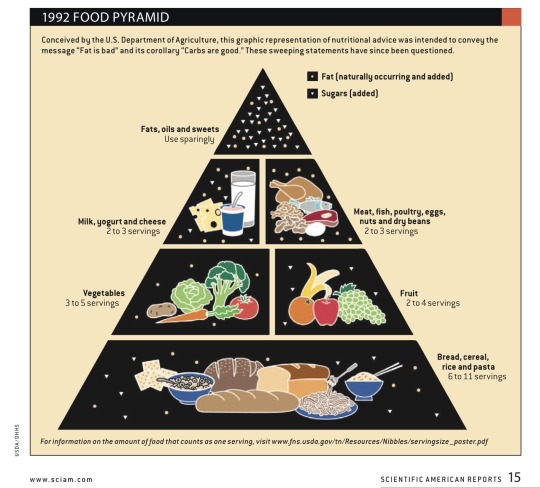
To summarize: Deutsche Welle is correct that the aggressive sales and marketing of high calorie dense carbohydrates contributed to an “Obesity Epidemic” in the 1990’s. However, the “grossly flawed” Food Pyramid of 1992 was a major cause also.
1 note
·
View note
Text
The 9 Best Foods and Drinks Before Bed
Introduction
A good night’s sleep is critical to our physical and mental wellness. Regrettably, many of us struggle to obtain enough quality sleep and wake up weary and sluggish. What many of us don’t realize is that what we eat and drink during dinner may be the key to having a decent night’s sleep. Some foods and beverages might assist induce calm and better sleep
In this post, we will look at…
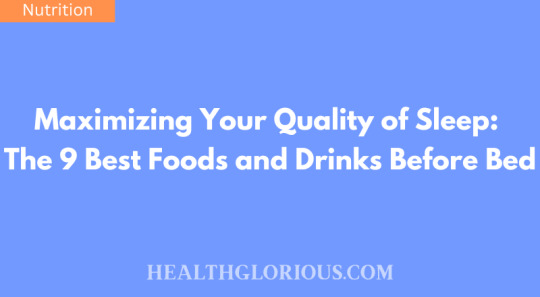
View On WordPress
#bedtime routine#before bed#calcium#chamomile tea#complex carbohydrates#drinks for sleep#foods for sleep#healthy sleep habits#herbal tea#magnesium#melatonin#potassium#protein#quality sleep#sleep#sleep hygiene#tryptophan#warm milk
0 notes
Text
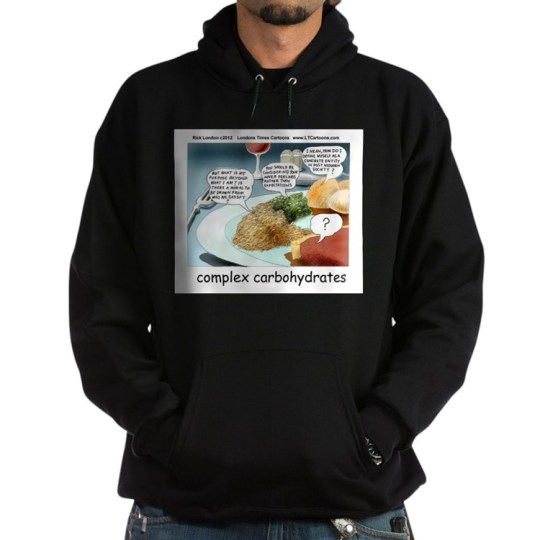
Way To Complex Carbohydrates Hoodie by @ricklondoncartoons & Gifts. Today only $29.99 (Save $36). Ends midnight Pac Tm. Worldwide Shipping Available. Click Here To Order.
#hoodie#hoodies#sweatshirt#sweatshirts#complex carbs#complex carbohydrates#carbs#carbohydrates#philosophy#funny hoodies#rick london#rick london cartoons#funny gift ideas#funny gifts#funny gift#funny mens clothing#mens clothing#mens fashion#mens hoodie#mens hoodies#food#foodies
0 notes
Text
had my version of drunk history tonight when someone w no science background wanted a detailed description of my research whilst i was several drinks in
#he was surprised bacteria have complex things like proteins so i was trying to explain that there are 4 biomolecules everyones got#(carbohydrates lipids nucleic acids proteins)#and it says something about my level of sobriety that i was struggling to list the four for him#this should be my test of handling alcohol in future. how many drinks until you forget the central dogma of molec bio or something
8 notes
·
View notes
Text
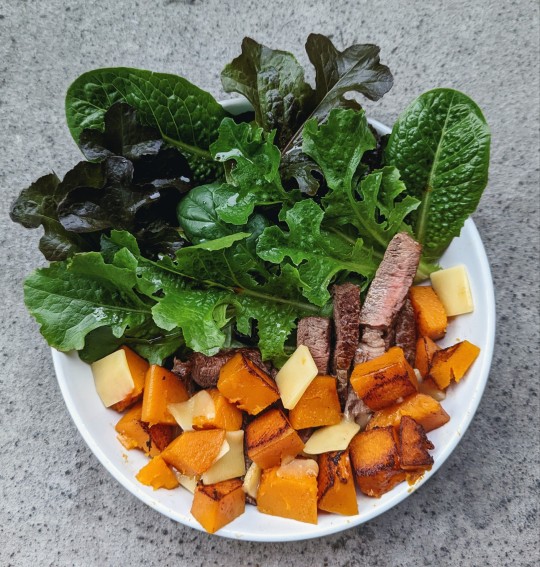
Today's dietitian-approved dinner. I was planning on a tiny steak, home grown salad leaves and some cheese, but I edited it at the last minute to meet her recommendation to "add a complex carbohydrate," to it. Pumpkin! It's sweet. I'm pleased to have remembered, and acted, upon her advice.
#food stuff#food#this is my personal blog#i thought salad leaves counted as complex carbohydrates but she said absolutely not lol
10 notes
·
View notes
Text
it's like. i don't hold it against any of the gps i went to for not figuring out that my issue was a dairy intolerance (bc let's be honest it IS a bit of an odd one) but i'll never forgive the doctor who leant forward and was like "sometimes it's normal to be tired all the time :-)" my dude i was convinced i was dying
#complete and utter hack#my current gp was closest she thought it was diet related#but thought i just wasn't getting enough carbs#*complex carbohydrates#i've bitched about thus before sorry lol#diary
7 notes
·
View notes
Text
How To Lose Weight Without Exercising?
Does working out matter if you're not eating right?
You're working hard to burn off calories at your workouts but it's hard to burn off a bad diet.
Try to replace normal carbohydrates with complex ones. Complex carbohydrates high fiber products like oats, brown rice etc which will make you feel full even with small servings and doesn't spike up your insulin level.
Eating fat will not make you fat. In fact, fat is essential in your diet.
Proteins are essential.
Focus on the macros - Carbohydrates (the right kind), Proteins and Fat.
Cooking medium - Butter, ghee or coconut oil
12. Drink Green tea
Green tea has really emerged as one of the best health drinks that are out there. Several studies have shown that the massive range of antioxidants that green tea contains helps burn fat and boosts metabolism + it comes packed with less calories.
Right after breakfast and lunch is a good time to have it because your metabolism rate is at the highest. Green tea will ensure that it’s faster further helping you digest better.
13.Use whey proteins
#Does working out matter if you're not eating right?#You're working hard to burn off calories at your workouts but it's hard to burn off a bad diet.#Try to replace normal carbohydrates with complex ones. Complex carbohydrates high fiber products like oats#brown rice etc which will make you feel full even with small servings and doesn't spike up your insulin level.#Eating fat will not make you fat. In fact#fat is essential in your diet.#Proteins are essential.#Focus on the macros - Carbohydrates (the right kind)#Proteins and Fat.#Cooking medium - Butter#ghee or coconut oil##12. Drink Green tea#Green tea has really emerged as one of the best health drinks that are out there. Several studies have shown that the massive range of anti#Right after breakfast and lunch is a good time to have it because your metabolism rate is at the highest. Green tea will ensure that it’s f#13.Use whey proteins#goal weight#i need to lose this weight#i need to lose so much weight#need to lose more weight#fat loss#weightwatchers
3 notes
·
View notes
Note
Okay THANK YOU for saying “your body craves what it needs” is bs because that felt like bs this whole time.
Like you don’t need more sugar if you crave sweets that is NOT what that means. Sugar is a food that people crave because it tastes good/sugar I think is an addictive food??
Idk it just felt like people making excuses when they’re supposed to be trying to eat a little healthier (healthier, not low cal, not low fat or keto or whatever. Diets are bs but craving sweets does not mean sugar is healthy thing for your body rn)
People crave sugar because it tastes good, which is not a bad thing, and there is an evolutionary reason that sugar and fat taste good to us. Carbs are your body's favorite thing because it is SUPER easy for your body to break them down into useful molecules.
I'm not a fan of the idea that any foods are addictive and I'm skeptical of models that suggest "refined food addiction" is a thing with a measurable, real-world impact; there's a lot of debate in that area of nutrition science and to me it kind of seems like the tools people use to track food addiction aren't really examining the addictiveness of specific foods, but are decent screening tools for people who have compulsive behaviors around food (for instance, one group of people who the Yale Food Addiction Scale has repeatedly been demonstrated to be REALLY good at identifying is people with anorexia).
But your body needs sugar all the time, whether that's in the form of complex carbohydrates that get broken down into simple sugars by your body, or simple sugars that you stir into your tea that then gets sent to your cells as energy. If your diet doesn't have enough sugar in it, your body has a processes to turn non-sugars into sugar so that it can use the sugar (gluconeogenesis!). Sugar is unambiguously good for you in the way that fat is unambiguously good for you. You need sugar to survive and it's not a bad thing if you want to have a cookie or a soda or some candy, and again - your craving probably isn't telling you that you're deficient in a specific micro or macronutrient, but I still think that you should listen to your craving.
Like, I don't know how much you know about psychotherapy but the attitude that a lot of diet-focused discussion takes toward cravings reminds me of cognitive behavioral therapy. "When you crave chocolate, no you don't! Don't think about the chocolate, you actually probably need starch or sugar or something, let's redirect that into having a banana, or some frozen berries, or some spinach. Point away from the unhealthy craving and into the healthy replacement, or, better yet, ignore the craving. Mind over matter. You choose how you act."
(I actually think "X craving means that I want Y food so I shall replace it with Z, which is similar" "craving salt means that I am dehydrated and need electrolytes so instead of potato chips I'll have some soup" is how this goes most of the time. I think this is a diet culture thing, not a food positivity thing.)
And you know what I think that's a garbage way to look at both food and emotions.
When I'm craving ice cream it's not because I've been mostly vegetarian for a week and am low on dietary cholesterol (AN IMPORTANT NUTRIENT. Don't be scared of consuming some cholesterol), I'm craving ice cream because sugar and fat taste good. So instead of trying to pretend that I'm getting "what I need" from a piece of salmon the size of a deck of cards with no salt and some lemon squeezed on top, I'm going to scoop out a moderate portion of ice cream and eat it while focusing on how much I enjoy it. And I'm going to do that instead of sitting down with a pint and a spoon while I'm stressed at work and eating something that tastes good to distract from the fact that work is stressful. (And sometimes it's fine to sit down with a pint and a spoon but I will say that's generally best not to do while you're in the middle of something stressful)
And if you want to relate that back to therapy I see this as more of the DBT approach. I've accepted that I want ice cream so I'm going to eat it in an intentional way and enjoy it instead of eating so much that I don't want dinner, or that it makes me feel sick, or that I eat it without noticing it because I'm using it as a distraction instead of a snack.
I'm not trying to shut down the negative emotion or shun the "bad" food, I'm accepting that I have that emotion and I'm working this neutral food into my day so that I'll feel good tomorrow and won't get heartburn overnight.
So I see that you're trying to be kind of anti diet culture here, but I don't think people need excuses to eat sugar, and I actually think that making excuses to eat it is significantly less healthy than just eating the sugar (which, again, is unambiguously healthy to eat as part of a varied, filling, nutritious diet). It seems like you may have internalized some ideas about sugar that are not great even if you are trying to separate from diet culture.
Nobody is ever going to eat a diet so healthy and nutritionally complete that they don't want candy or cake or cookies sometimes. Food is not only fuel, it is entertainment and culture and comfort and distraction and celebration and a million other things, but it is not bad. I don't think there's a single universally bad food out there, or any food that never belongs as part of someone's diet (unless it's something you're allergic to - I don't care if you're craving peanuts, do not eat peanuts if you have a peanut allergy).
So it's okay to make sugar, you don't need to make excuses. It's okay to eat sugar if you're craving sugar, even if that's not what your body "needs". But also sometimes a craving is your body saying "I'm hungry and this sounds good, please feed me" even if you're not a finely-tuned spectrometer that's craving blueberries pie because you actually need antioxidants from the blueberries (you're not a finely tuned spectrometer, you don't need the antioxidants from the blueberries, it's perfectly fine to just eat a slice of pie).
613 notes
·
View notes